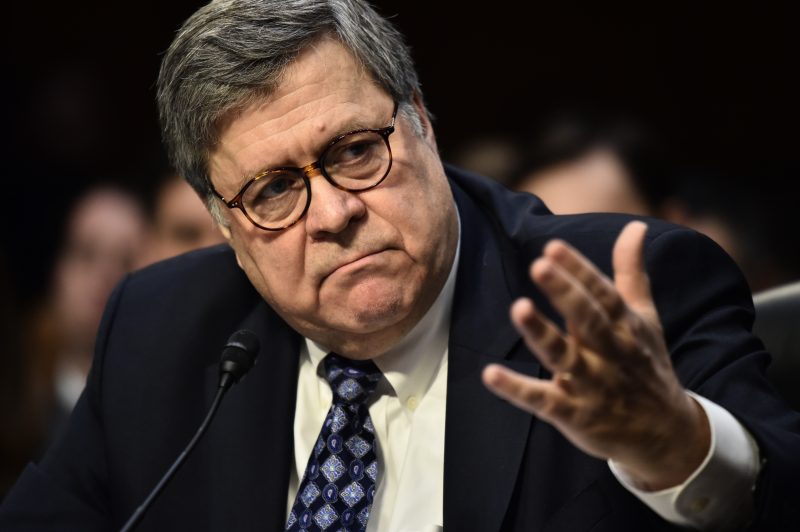Bill Barr confirmed as US attorney general
Bill Barr was confirmed as the 85th US attorney general, and now takes on overight of the investigation into possible collusion between Russia and US President Donald Trump and his campaign (Nicholas Kamm)
Washington (AFP) – The US Senate on Thursday confirmed Bill Barr as the nation’s next attorney general, placing him in control of the long-running investigation into President Donald Trump’s possible Russia connections.
Lawmakers in the Republican-controlled Senate voted largely along party lines, 54-45, to confirm Barr to the post, which he had previously held under George H.W. Bush’s administration.
Trump has attacked Special Counsel Robert Mueller’s Russia investigation as a “witch hunt.” But Barr said during congressional testimony that he does not agree with that description, and that he would allow Mueller to complete his investigation unimpeded.
The White House said Barr’s confirmation marks “a major victory for justice and the rule of law in America.”
Barr, 68, will be sworn in at 4:45 pm (2145 GMT) in the Oval Office, according to the Justice Department.
The longtime communications industry lawyer takes the job amid a tug of war between the president, who wants greater control of the Justice Department, and Mueller.
Barr was confirmed despite his refusal to commit to making Mueller’s report public, something which has bothered many Democrats. He has pledged to be as transparent as possible, but that assurance has not sat well with critics.
Top Senate Democrat Chuck Schumer warned that Barr would be entering a “maelstrom” upon taking the job.
“We need an attorney general who can assure the Senate and the American public that he will stand up to a president who is dead-set on protecting his political interests above all norms and rules of conduct,” Schumer said in opposing Barr’s nomination.
“I remain unconvinced that Mr Barr is prepared to meet this moment.”
Barr would succeed Jeff Sessions, whom Trump sacked in November amid rising pressure on the White House from Mueller’s investigation.
While he led major Trump administration initiatives to crack down on crime and illegal immigration, Sessions angered the president when he recused himself from overseeing the Mueller probe because of his own contacts with Russians.
His recusal effectively served as a buffer between Mueller and the White House, but critics warn that the barrier is now considerably weakened.
Barr was strongly critical of the Mueller investigation in 2017 while he was in the private sector.
Last year he sent an unsolicited legal opinion to the Justice Department and White House arguing that Mueller had no grounds to investigate Trump for obstruction of justice based on the firing of FBI director James Comey in May 2017.
Trump abruptly removed Comey amid rising tension over the FBI probe. Comey later said he had rejected pressure from Trump to publicly declare that he was not under investigation.
Barr signaled in his confirmation hearing he intends to maintain his independence, saying he would rebuff a White House order to fire Mueller absent any good cause.
Disclaimer: This story is published from a syndicated feed. Siliconeer does not assume any liability for the above story. Validity of the above story is for 7 Days from original date of publishing. Content copyright AFP.


